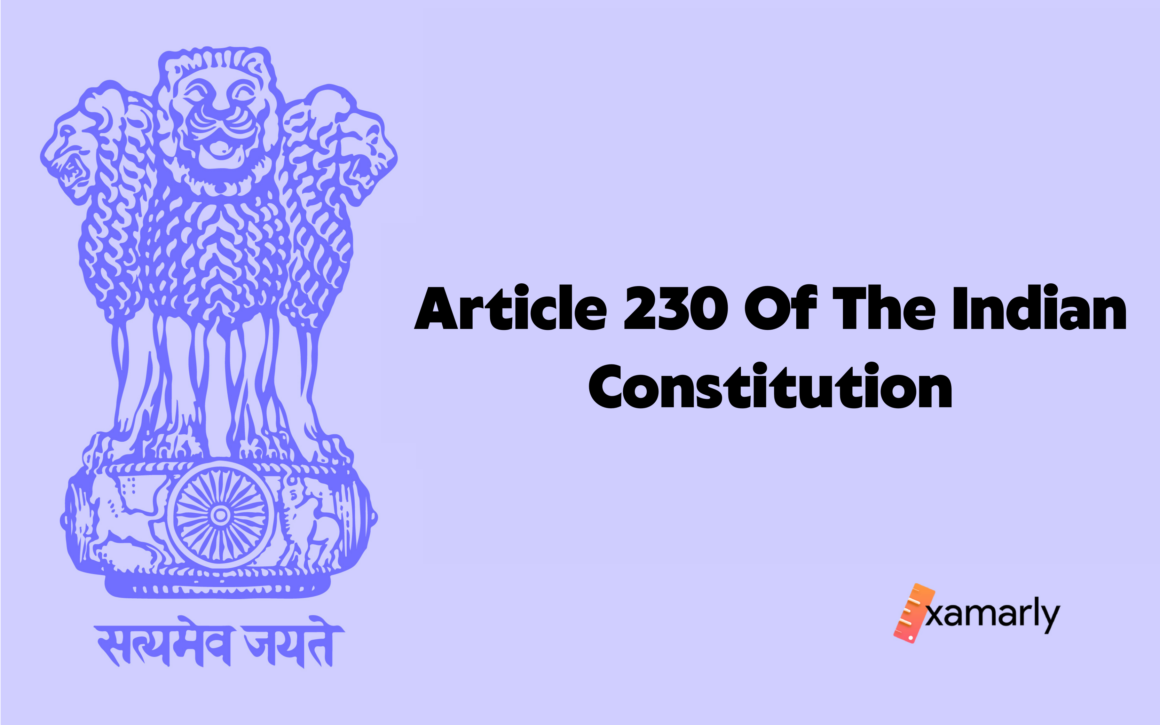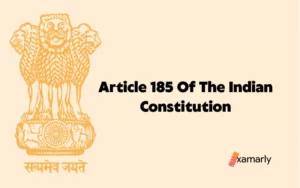Article 230 of the Indian Constitution deals with the jurisdiction of the Union Territories. It talks about how the authority of the High Court can be extended to exercise jurisdiction over the Union Territories.
It also reflects the involvement of Parliament in the context.
Let us dig deep into Article 230 of the Indian Constitution and grasp all the concepts present in it.
Article 230 of the Indian Constitution – In Detail
Clause 1 – As it is & Explained
230. Extension of jurisdiction of High Courts to Union territories
(1) Parliament may by law extend the jurisdiction of a High Court to, or exclude the jurisdiction of a High Court from, any Union territory
The first clause of Article 230 of the Indian Constitution says that the Parliament has the authority to enable High Court to extend its Jurisdiction to the Union Territories of Indian subcontinent.
It also says that the Parliament has the authority to exclude a particular High Court from the jurisdiction to any Union Territory.
Clause 2 – As it is & Explained
(2) Where the High Court of a State exercises jurisdiction in relation to a Union territory:
(a) nothing in this Constitution shall be construed as empowering the Legislature of the State to increase, restrict or abolish that jurisdiction; and
(b) the reference in article 227 to the Governor shall, in relation to any rules, forms or tables for subordinate courts in that territory, be construed as a reference to the President
The second clause of Article 230 of the Indian Constitution says that In cases when the state’s high court has jurisdiction over a territory belonging to the Union:
(a) no provision of this Constitution shall be interpreted as giving the State Legislature the authority to expand, contract, or eliminate such jurisdiction; and
(b) The President must be deemed to have been referred to whenever the Governor is mentioned in Article 227 in connection with regulations, forms, or tables for subordinate courts in that region.
Summing Up
In conclusion, Article 230 of the Constitution of India plays a vital role in the administration of Union territories in the country. It provides for the appointment of a jurisdiction or an administrator for each Union territory, and gives the President of India the power to make regulations for the peace and good government of a Union territory.
The article also specifies that the laws made by the Parliament with respect to Union territories shall have the same force and effect as the laws made by the Parliament with respect to the states, and allows the President to make regulations for Union territories to adapt or supplement such laws.
Overall, Article 230 helps to ensure the smooth functioning and governance of Union territories in India.
Here are some frequently asked questions about this article
What is the purpose of Article 230 of the Indian Constitution?
Article 230 of the Indian Constitution says that the President of India is in charge of and runs the Union territories. It empowers the President to appoint an administrator for a Union territory, who is responsible for the administration of the territory on behalf of the President.
The Administrator is responsible for the general supervision and control of the affairs of the Union territory, and exercises the powers and functions of the government of the Union territory, as prescribed by or under the Constitution.
How are Union territories administered in India?
The President, acting to such extent as he sees fit, appoints an Administrator to oversee the administration of Union Territories. The Andaman and Nicobar Islands, Delhi, and Puducherry all have Lieutenant Governors who are in charge of governing those areas.
Can the President appoint the Council of Ministers for a Union territory?
The President of India appoints the Chief Minister and also appoints the other ministers based on the advice of the Chief Minister.






